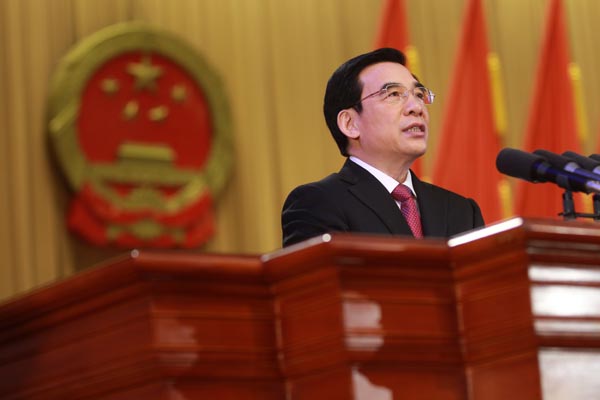

BEIJING - Beijing will strengthen its efforts to treat PM2.5 and slash the density of major air pollutants by 2 percent this year, the municipality's acting mayor said Tuesday.
 |
|
Wang Anshun, acting mayor of Beijing municipality, delivers the municipal government work report at the First Session of the 14th Beijing Municipal People's Congress on Jan 22, 2013, in Beijing. Wang is also the deputy secretary of the Beijing Municipal Party Committee and Chairman of the CPPCC Beijing Municipal Committee. (Photo by Cui Meng/asianewsphoto) |
The capital will take 180,000 old vehicles off the road and promote clean energy autos among government departments, the public and the urban cleaning sector, which includes street cleaners and trash collectors, Wang Anshun said at the opening of a session of the Beijing Municipal People's Congress, the municipal legislature.
The heating systems of 44,000 old, single-story homes and coal-burning boilers downtown are to be replaced with clean energy, Wang said as he delivered a government work report.
The city will also speed up the promotion of clean energy in rural areas and strictly control dust in construction projects, said Wang.
He vowed to strengthen air quality monitoring and analysis, as well as the release of such information.
Earlier this month, several consecutive days of smoggy weather choked Beijing, as readings for PM2.5, or airborne particles measuring less than 2.5 micrometers in diameter, exceeded maximum reading levels in many areas.
Authorities took emergency response measures, including suspending outdoor sports activities for primary and middle school students and halting work at some construction sites in extremely polluted areas.
In response to public demand, real-time air quality monitoring data on PM2.5 intensity in China's 74 major cities, including Beijing, has been released since January 1.
Special:
Air quality suffers due to smog